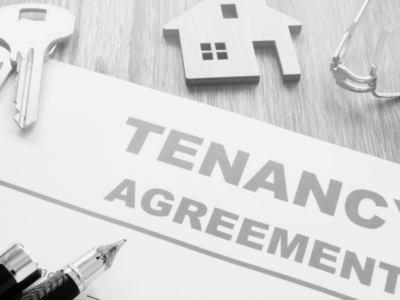Practical tips for any self managed landlord to implement from an experienced managing agent.
As a managing agent (and landlord) for over 20 years, representing a cross section of clients and tenants the current situation meant that we had to adapt some of our usual procedures in order to implement the current crisis of covid-19. My mantra of being consistent, fair, transparent and professional is what should layer your procedures at all times.
1) Let tenants know you care
This really should have been actioned way before our government enforced restrictions, but if you have not already done so, then send tenants some general information about what they should do if they experience any symptoms, state some of the main points, remembering to point out if they lived in a shared household.
Include safe distancing for repairs, where there are no symptoms certain trades are still attending emergency appointments. Provide tenants with a separate clean safe schedule for them to implement. I ensured for all of my tenants that I delivered bags and bags of cleaning products to get them through this period, even loo roll.
2) Know your critical figure
Work out this figure, what bills could be delayed or reduced. Not every landlord is entitled to a mortgage holiday – they may have a commercial loan or be in arrears. When you know what this critical figure is, you will have some idea on whether you can weather this. Is there some money you can pull in from your savings or personal income? Will you benefit from the recent Bank of England rate cuts – that those savings could be reassigned for the end of April 2020 and beyond.
Ensure you contact all of your creditors and get something in writing from them in order to finalise that critical figure, no assumptions please.
3) Employment log
Make an employment log of all your tenants, this information you should be able to get from your referencing and or application forms. The employment log should include occupation, employer (if applicable), status, and their salary. At a glance you may be able to see who will be more exposed.
The tenant who is on housing benefit is likely to be in a more favourable position than the tenant who works in an office of a fashion company.
This is why it is always good to have a mixed tenant base to cover risk if the portfolio allows.
4) Applied knowledge is key
At George Ellis, one of the things we did immediately was to gather on one document (and we are constantly updating) all of the government support available. We named it “support advice” – not only does it educate you, but allows you to assist your tenants. We have sent this information to any tenants who have contacted us stating that they believe that they will experience some difficulty with paying the rent during this period. However, you can send this information to every tenant, that is up to you. The information allows the tenant to find their situation (and yes, it is comprehensive) and contact the relevant authority. Whilst I appreciate this is a global unprecedented crisis, time is crucial as there are long waits.
Tenants need to appreciate that clear & concise communication with landlords is more vital than ever and a “see what I can do” response from any tenant, especially when there is so much help from the government is simply not acceptable in my opinion. Landlords and tenants must work together and this can be achieved.
5) How to make a decision to offer a rent payment holiday
Some of the other factors to take into consideration, could include, date of tenancy, is it fixed or in periodic, any history of late payments or arrears and if so, did tenants notify you beforehand? Is there a guarantor, how much is the deposit, is there any savings the tenant(s) may have, amongst other things? Once you have sent the support advice form it is time for you to telephone your tenants.
Everything you say verbally should always be followed up in writing. How is your tenant going to pay you back the rent once we get through this? Is the vital question every landlord needs to ask themselves. It has to be said that I have spoken to some tenants who think a rent payment holiday means they never have to repay the landlord. Perhaps the term needs to be changed to deferred rent payment.
You also have to sort out who is genuine and who is just taking advantage of the situation. Speaking to a set of tenants when I explained to them that the temporary reduced rent will need to be repaid, they told me that they did not want to and that they would be looking for a cheaper property to move to – good luck!
Suffice to say, a letter was sent to them saying that they wanted to decline on the rent payment plan offered to them but also making it clear that no member of the George Ellis Property team would be facilitating a check out during government restrictions and it clearly states in our tenancy agreements that to end the tenancy this formal process must be conducted by a member of our team.
For those who are genuine, negotiate what you can, listen thoroughly to what tenants are saying, demonstrate compassion. However, when it comes to a plan there has to be a clear way to pay it back, over a set period.
Remembering this is likely to go on for longer than any of us can imagine. If your tenant has a rent of £1200pcm and can only pay £700.00 are you happy to defer £1500 over the next three months? If they are in a fixed term with say only five months left will they be able to pay £1200 plus an additional £750 for the remainder of the fixed term? And whilst I am NOT recommending that any landlord should give a new fixed term to any tenant during this pandemic. You have to weigh up your own risk. How many months are you prepared to give tenants to pay the deferred rent.
Our government have not really done anything to assist landlords to ensure we will be paid our rent that is due on all tenancies during this time – still just ignoring our contribution to society.
What will happen if tenants decide not to pay you back and just move? The courts were already inundated, can you imagine once this has passed?
What provisions do you have in-place if that becomes your reality?
The disproportion of confirmation of tenancy requests we receive, to tenants giving their notice is vast. So, landlords are you taking in tenants without covering this procedure and more (but there is a time for everything and perhaps this is not the time). Needless to say, there are a minority of tenants who will not have integrity, but those stories will unfold within time.
6) The agreement
Once an agreement has been made, put it in WRITING for the tenant(s) to sign. Ensure the agreement has the word temporary and it is on the proviso to certain conditions. Some of the main ones being; noting payments to be paid on or before the agreed date, that it must be repaid in any event before the end of the tenancy/tenant vacate, enabling landlords to deduct from deposit, signing the agreement (all tenants) and initial multiple pages if applicable.
7) Monitor and log everything
Online banking is invaluable to all of us and for those landlords who do not have access to your bank accounts online. I have no suggestions. It will take you hours to get anyone to answer at the banks. You have to check daily, be in contact with your tenants if their promised rent has not arrived, but start the conversation with “how are you feeling” or something similar. Even if you are not expecting rent, just check so you can see if any suspicious activity.
Log all conversations with date AND times. Those of you that attend my seminars know the importance of this.
8) Repairs, Maintenance And Compliance
Make use of your time to ensure your documents are up to date. Are your tenancy agreements comprehensive?
Is your GDPR statement compliant? All deposits registered correctly? What about the tenants that took occupancy just before the lockdown? Do your CP12 (did you have to look that up – it is your gas safe certificate) two months ahead of the expiry. Communicate any access into the property but observe what I have said in Point 1. Ensure all other regulatory documents are up to date.
9) Do not take on the negative pressures of others
This does not just apply to landlords but one of my favourite top 20 songs is by an artist called Delroy Wilson, who has a song named “We’re all in this thing together” never has a song been so apt right now! So, let me share the outline of a story of what happen to us. A guarantor of one of our tenants who expressed he could not pay anything as he was made redundant, was contacted by way of letter to just put him in the picture. We thought it was best to be proactive and try and get something resolved.
Remember he was not forced to sign the personal guarantee 16 months ago.
The tenant had a calm and civilised conversation with the agency prior to the letter being sent to the guarantor, the tenant was given our support advice document and just chose to ignore it after he agreed to a rent payment plan.
The abuse the guarantor left on our voicemail was not only shocking, but damn right threatening and insulting. In short among other things recorded, he stated he would start a damaging social media campaign against the company.
A more detailed letter was sent to him (I was not even going to try and attempt to reason with a person like this verbally). A telephone conversation did happen, the result being, the guarantor recognised his obligations. Rent that was initially promised by our tenant was paid to us. Safe to say there is a signed rent payment plan in place. I tell you this story, so you do not allow your headspace to get filled with negativity, – because you can control that. I also appreciate, that whilst we are ALL in this together and the threats and the uncertainty are very real and scary.
Do not allow the financial negative pressures of others to impact on your mindset or behaviour.
One day, when this is all over, and we will get through this, whatever the financial consequences may be, the most important thing is to stay safe and alive, knowing that you did not take your negative spirit to try and impact others, who were merely trying to find a win-win situation for all involved.
Marie Parris is CEO & founder of George Ellis Property Services, the company operates across seven disciplines to include lettings & management across London, block management, an independent tenant referencing service, inventories and sales. Marie provides structured personal landlord tuition courses than will give you CPD points – see website for more details.






















Comments